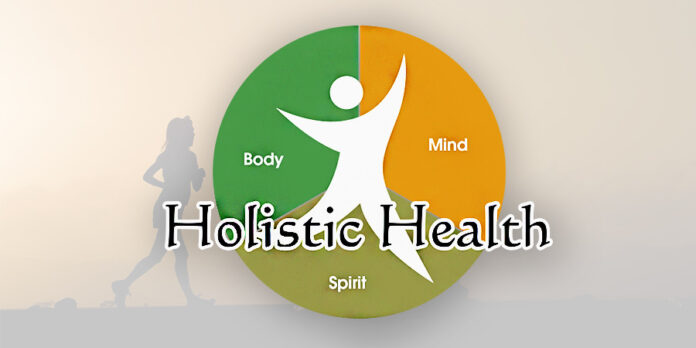In today’s fast-paced world, the concept of holistic health has gained significant traction as people seek comprehensive approaches to well-being that address not only physical ailments but also mental, emotional, and spiritual aspects of health. Holistic health emphasizes the interconnectedness of mind, body, and spirit and advocates for a balanced and integrated approach to achieving optimal health and wellness.
Holistic health is a philosophy that recognizes the intricate interplay between various aspects of an individual’s health and well-being. It encompasses not only physical health but also mental, emotional, and spiritual dimensions, viewing each as equally important components of overall wellness. At its core, holistic health emphasizes the importance of treating the whole person rather than just isolated symptoms or conditions.
Importance of Holistic Approach to Well-being
In an era marked by rising rates of chronic diseases, stress-related illnesses, and mental health disorders, the importance of holistic health cannot be overstated. By addressing the root causes of health issues and promoting balance and harmony across all aspects of life, holistic approaches offer a path to sustainable health and vitality.
Physical Health
Physical health forms the foundation of holistic well-being and encompasses various factors, including:
Nutrition and Diet
A balanced and nutritious diet is essential for supporting overall health and vitality. Emphasizing whole foods, fruits, vegetables, lean proteins, and healthy fats can provide essential nutrients and support the optimal functioning of the body.
Exercise and Movement
Regular physical activity is crucial for maintaining cardiovascular health, muscle strength, and flexibility. Engaging in activities such as walking, jogging, yoga, or strength training can improve mood, energy levels, and overall fitness.
Sleep and Rest
Adequate sleep is essential for physical and mental rejuvenation. Prioritizing restful sleep and establishing a consistent sleep routine can enhance mood, cognitive function, and immune function.
Mental Health
Mental health is equally important as physical health and involves various strategies for promoting psychological well-being:
Stress Management
Effective stress management techniques, such as deep breathing, relaxation exercises, and time management strategies, can help reduce the negative impact of stress on overall health and well-being.
Mindfulness and Meditation
Practising mindfulness and meditation can cultivate present-moment awareness, reduce anxiety, and promote a sense of calm and inner peace.
Emotional Well-being
Acknowledging and processing emotions in a healthy way is essential for emotional well-being. Techniques such as journaling, expressive arts, and therapy can support emotional healing and resilience.
Spiritual Health
Spiritual health encompasses the search for meaning, purpose, and connection to something greater than oneself:
Connection to Nature
Spending time in nature, engaging in outdoor activities, and appreciating the beauty of the natural world can foster a sense of awe, wonder, and interconnectedness.
Practices for Spiritual Growth
Engaging in spiritual practices such as prayer, meditation, or reflection can deepen one’s connection to the divine and promote spiritual growth and development.
Cultivating Gratitude and Compassion
Practising gratitude and compassion towards oneself and others can cultivate a sense of abundance, generosity, and interconnectedness with all beings.
Social Health
Social health involves nurturing supportive relationships and fostering connections with others:
Building Supportive Relationships
Developing and maintaining close relationships with family, friends, and community members can provide emotional support, companionship, and a sense of belonging.
Community Involvement
Participating in community activities, volunteering, or joining social groups can foster a sense of connection, purpose, and contribution to the greater good.
Communication and Connection
Effective communication skills, active listening, and empathy are essential for building healthy relationships and resolving conflicts constructively.
Holistic Therapies and Practices
Numerous holistic therapies and practices can complement conventional medical treatments and support overall health and well-being:
Acupuncture
Acupuncture, an ancient Chinese healing modality, involves the insertion of thin needles into specific points on the body to restore balance and promote healing.
Herbal Medicine
Herbal medicine utilizes the healing properties of plants and botanicals to support various aspects of health, including immune function, digestion, and stress management.
Yoga and Tai Chi
Yoga and tai chi are mind-body practices that combine physical postures, breathwork, and meditation to promote flexibility, strength, relaxation, and mindfulness.
Integration of Mind, Body, and Spirit
True holistic health involves recognizing the interconnectedness of mind, body, and spirit and striving for balance and alignment across all aspects of life:
Recognizing Interconnectedness
Understanding that mental, emotional, physical, and spiritual health are interconnected and influence one another can guide individuals towards a more holistic approach to well-being.
Balancing Different Aspects of Health
Balancing the various aspects of health involves prioritizing self-care, setting boundaries, and making conscious choices that support overall well-being.
Creating Harmony and Alignment
Creating harmony and alignment in life involves aligning one’s values, priorities, and actions with a sense of purpose and meaning, leading to greater fulfilment and satisfaction.
Conclusion
Holistic health offers a comprehensive approach to well-being that addresses the interconnectedness of mind, body, and spirit. By embracing holistic principles and practices, individuals can cultivate greater awareness, balance, and vitality in their lives, leading to enhanced health and overall quality of life.




